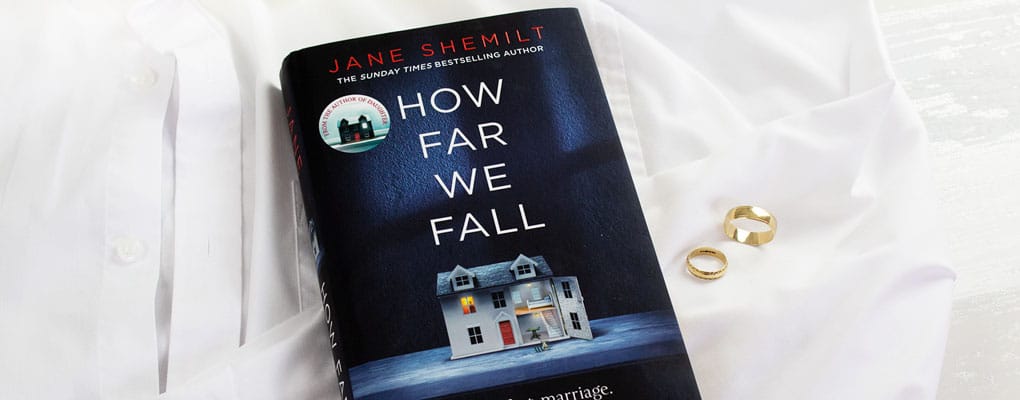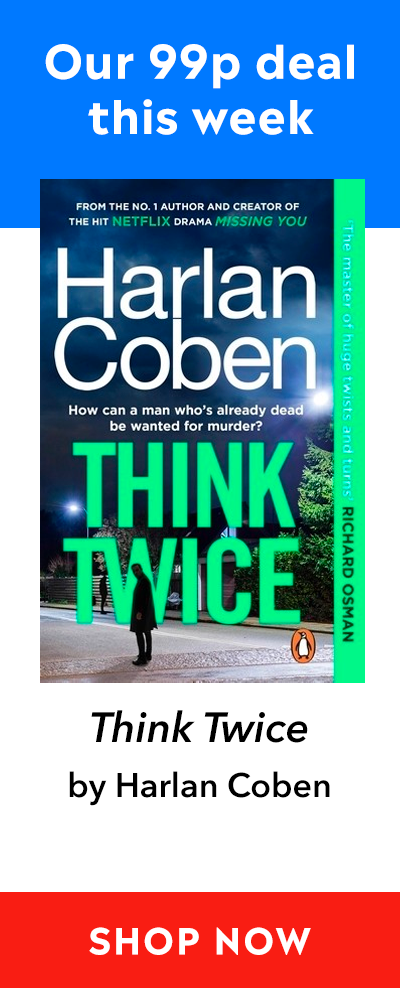Books
Dear Reader: a letter from Jane Shemilt
Dear Reader,
Why did Shakespeare’s Macbeth inspire me to write How Far We Fall? In a year where there are nineteen different treatments of Macbeth, maybe it’s more useful to ask why not. Why not take a story about a glamorous couple, which mixes ambition with murder and magic, and make it your own? If it was good enough to inspire those creative minds at the National Theatre, the Royal Opera house, filmmakers and Jo Nesbo, it was good enough for me. But why the widespread appeal?
– Political relevance? An inexperienced leader so intoxicated by power that he unravels under pressure and questions get asked about his fitness to govern; familiar, anyone?
– The #MeToo movement? Because the story plays into the groundswell of women wanting power. Lady Macbeth is a byword for female ambition; then there are the witches of course, whose role could be summed up as speaking truth to power.
– Mental health issues are currently worrisome, so a soldier who loses his morality because of post-traumatic stress would fit and dovetail neatly into my take: a good doctor turned bad, experiencing compassion fatigue.
– Then there’s the media preoccupation around famous couples – the good the bad and the extremely ugly. Brad and Angelina’s high profile fall out at one end of the spectrum – and far down at the other, Bonnie and Clyde, Ian Brady and Myra, Fred West and Rose. In spite or because of the horror, these stories sell newspapers; it seems we can’t get enough.
Though How Far We Fall may tap into the zeitgeist, to be honest the seeds of my own inspiration were sown decades ago when I fell in love with Macbeth – man and play – at A-level. The words he spoke have stayed with me, like those of an unforgotten first love. I know most of them off by heart. The skill of the writing is such that you stay with the man as he lurches from atrocity to atrocity – and who amongst us hasn’t felt the desperation of having undertaken some enormous task, being compelled to hack through to the bitter end? Writing some of my A-levels felt exactly like that.
Macbeth was the seed; I was subconsciously waiting for fertile soil, until I recognised that it was very near to home. My husband’s world of neurosurgery is a battleground against disease and disorders – a fight of life and death, just like the soldier’s world in medieval times. These neurosurgeons make good warriors, willing to do whatever it takes to win the war. There is a darker side; as with any hierarchical structure of ambitious individuals, there are covert power struggles in terms of papers written, research done, grants received, the leadership of departments. Private practice.
How Far We Fall is about these kinds of conflicts in modern neurosurgery, an obsessive wife and a protagonist whose downward trajectory powers the plot. Even the sisters appear to whisper in his ear. I had to make very sure the book stood for itself, but all the same, I sneakily hope Shakespeare himself might have approved.
Jane Shemilt
Have you read How Far We Fall by Jane Shemilt yet? Let us know in the comments below!



Please note: Moderation is enabled and may delay your comment being posted. There is no need to resubmit your comment. By posting a comment you are agreeing to the website Terms of Use.